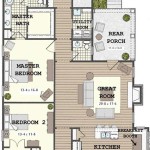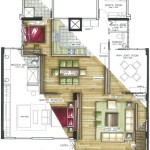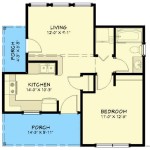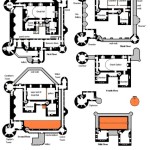Essential Aspects of Infill House Plans
Infill house plans refer to architectural designs for constructing new homes on vacant lots within existing neighborhoods. These plans have gained popularity as a means of revitalizing aging communities and increasing urban density without sprawling into undeveloped areas.
Site Selection
The first step in developing infill house plans is selecting a suitable site. This involves identifying available vacant lots, evaluating the neighborhood's character, and considering zoning regulations. Factors to consider include lot size, orientation, topography, and access to utilities.
Design Considerations
Infill house plans must carefully integrate with the surrounding environment. Architects consider factors such as:
- Architectural harmony: The new home's design should complement existing architectural styles while introducing contemporary elements.
- Scale and proportion: The house's size and mass should be compatible with neighboring structures.
- Setbacks and setbacks: Buildings must adhere to setbacks established by zoning regulations to ensure adequate open spaces and minimize potential conflicts.
Sustainable Features
Modern infill house plans often incorporate sustainable features to reduce environmental impact. These features include:
- Energy efficiency: Highly insulated walls, windows, and energy-efficient appliances minimize heat loss and energy consumption.
- Water conservation: Low-flow fixtures, water-saving toilets, and rainwater harvesting systems reduce water usage.
- Sustainable materials: Environmentally friendly building materials, such as reclaimed wood or bamboo, minimize resource depletion.
Layout and Space Planning
Infill house plans must maximize space utilization while providing comfortable and functional living environments. Architects consider factors such as:
- Multi-level designs: Split-level or multi-story designs allow for more living space on smaller lots.
- Open floor plans: Large open spaces create a sense of spaciousness and foster natural light circulation.
- Flexible spaces: Rooms designed for multiple functions, such as a den that can also serve as a guest room, increase space versatility.
Building Permits and Approvals
Obtaining building permits and approvals is essential for any infill construction project. Architects work closely with local authorities to ensure compliance with zoning regulations and building codes. This process typically involves submitting detailed plans and undergoing inspections.
Community Engagement
Infill house plans can impact the surrounding neighborhood. Architects engage with community members through public meetings, presentations, and surveys. This ensures that the project aligns with the community's vision and addresses potential concerns.

Infill Floor Plans Google Search Narrow Lot House Small Design

Infill D O Architects Floor Plans Small House

Infill Floor Plans Google Search Narrow Lot House Small Design

Charming New Home On A Narrow Infill Lot

Housing Design Solutions For Challenging Infill Sites Pro Builder

Infill Housing Solution

Designing A Home To Maximize Compact Infill Site Pro Builder

The Hayden Melanson Homes

South Bend S Infill Plans Include Pre Approved Multi Family Designs Planetizen News

One Year Later Pre Approved Home Plans For South Bend Infill Niskanen Center








